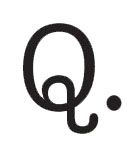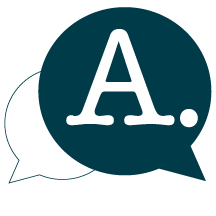A Conversation With Dr. Ramona Thomas

Dr. Ramona Thomas, currently a research consultant with Center for Responsive Schools, discusses the role and importance of SEL and literacy in a postpandemic learning environment.
Ramona Thomas holds a bachelor’s degree in applied mathematics from Brown University and a doctorate in higher education from the University of Pennsylvania. She has extensive experience in education, philanthropy, and nonprofit leadership, specifically in developing and implementing new initiatives from the ground up. From 2011 to 2016, Ramona was a knowledge management consultant with the Collaborative for Academic, Social, and Emotional Learning (CASEL). She currently serves as a research consultant to Center for Responsive Schools.

What is your background with social and emotional learning?

I started working in social and emotional learning as a knowledge management consultant with CASEL [Collaborative for Academic, Social, and Emotional Learning] in 2011. I was hired to plan CASEL’s knowledge management framework and infrastructure for collecting, organizing, and sharing the knowledge coming out of its Collaborating Districts Initiative. An important part of my role was overseeing the initial procurement, analysis, and curation of the district partners’ best SEL practices for CASEL’s knowledge sharing platform. The goal was to facilitate learning so that educators and education leaders could learn from each other about implementing systemic SEL.

What drew you to this field?

The premise that people learn social and emotional skills over the course of their lives aligns with one of my personal beliefs—people evolve over time. I appreciate the fact that regardless of age, profession, background, social status, or background, we all have unlimited opportunities to learn and model social and emotional skills in our normal, everyday lives.

Students and educators alike have experienced great challenges in the past two years. What does research tell us about any learning opportunities created from these challenges?

Research over the past two years reveals an increased need for social and emotional learning for both students and educators. There is a greater focus on providing educators with more and continuous social and emotional support than before the pandemic, which is critically important.

Educators are seeing real setbacks and learning gaps in their students after the months of pandemic. What suggestions would you offer to educators who need to address these gaps, particularly in literacy?

Educators are facing so many challenges returning from the pandemic. Literacy is especially important because it is regarded as a gateway to students’ academic success. With so many digital devices and platforms competing for students’ time and attention, educators have to work harder and find more creative ways to engage students and keep them interested in literacy activities like reading, writing, and storytelling. I recommend educators explore the Fly Five curriculum as a way to facilitate student interest and engagement in literacy. Fly Five’s instructional emphasis integrates reading, writing, speaking and listening, and vocabulary skills in each lesson as a means of delivering the SEL content.

What is your favorite aspect of your work?

I really enjoy the aspects of my work that focus on adult SEL, particularly the ongoing research around the different Social and Emotional Type Inventory (SETI) families and types. Adult SEL is so important and the need for it has been intensified due to the pandemic.

What are one or two projects you’re working on right now?

Right now, I am planning a webinar that focuses on Fly Five’s literacy integration and I am updating how Fly Five’s C.A.R.E.S. standards align with state SEL standards.

Have any recent findings in your work been unexpected or surprising to you?

Yes. In researching and reviewing state SEL standards, I was surprised to learn that a state senator has filed a bill to prohibit public and charter schools from using federal, state, or private funds to promote, purchase, or use SEL concepts.
